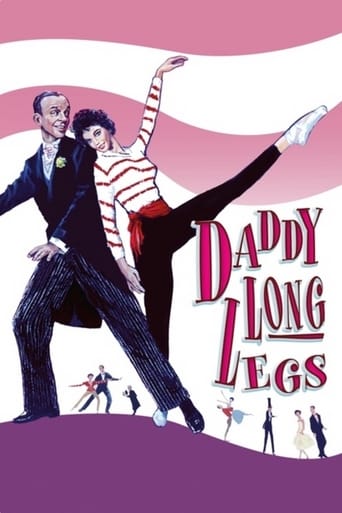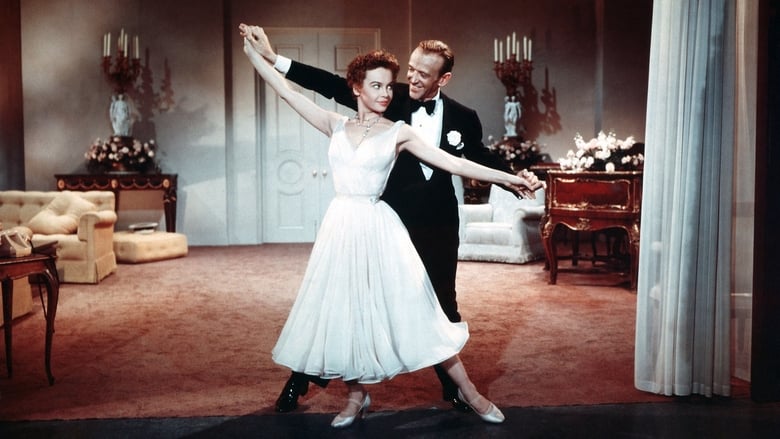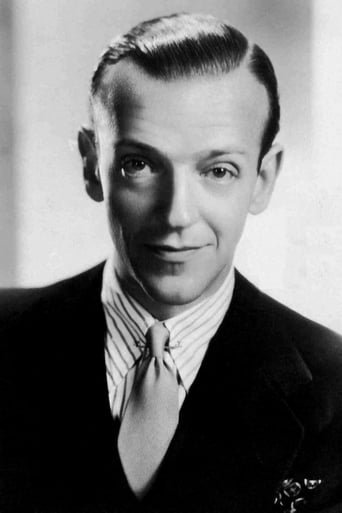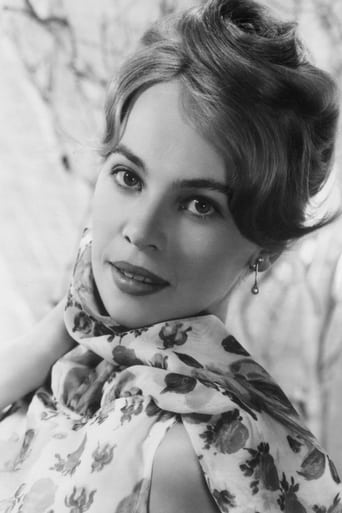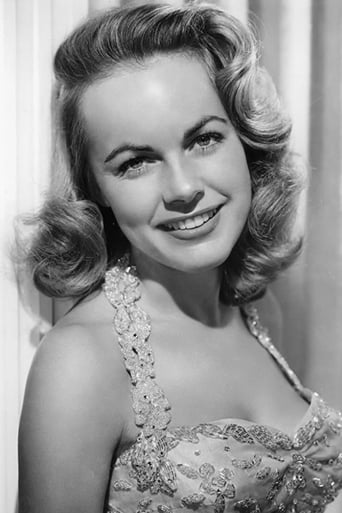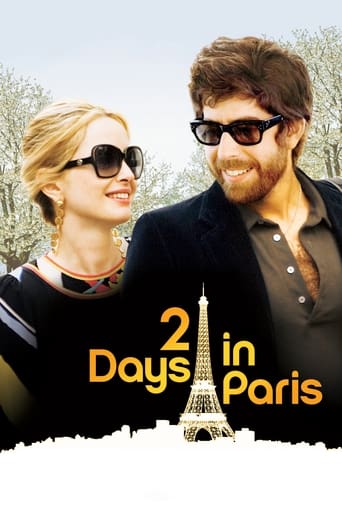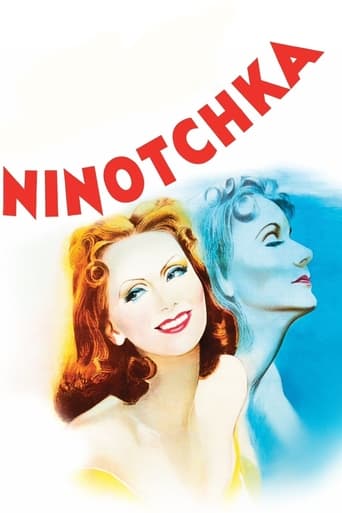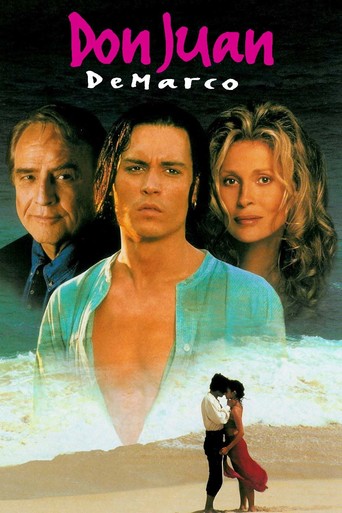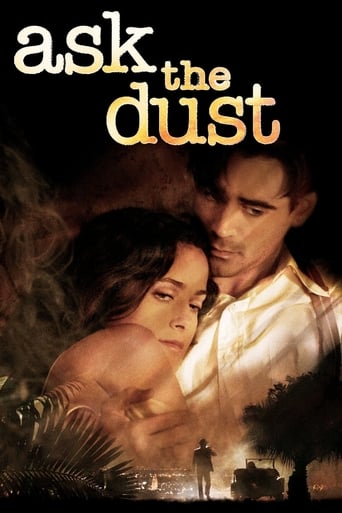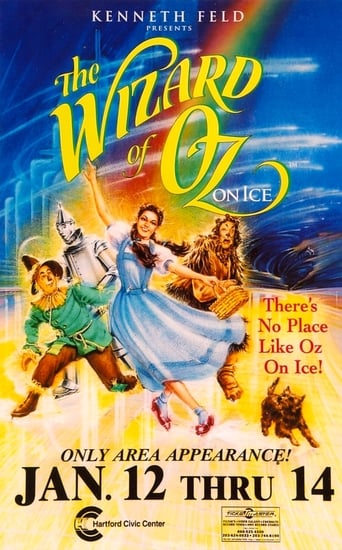Daddy Long Legs (1955)
Wealthy American, Jervis Pendleton has a chance encounter at a French orphanage with a cheerful 18-year-old resident, and anonymously pays for her education at a New England college. She writes letters to her mysterious benefactor regularly, but he never writes back. Several years later, he visits her at school, while still concealing his identity, and—despite their large age difference—they soon fall in love.
Watch Trailer
Cast


Similar titles
Reviews
That was an excellent one.
Simply A Masterpiece
For all the hype it got I was expecting a lot more!
Clever, believable, and super fun to watch. It totally has replay value.
Yes, Fred Astaire is in a scene with two Harry Mortons from the Burns and Allen Show: Fred Clark and Larry Keating. All we needed was Hal March and Johnny Brown! Now that the trivia is out of the way, how could Johnny Mercer's score have been so butchered in this film? The only song properly presented is "Something's Got to Give". It became an instant standard. In his tribute album to Fred Astaire, it is the only contemporary song recorded by Mel Torme. The rest of the songs came from the 1930s. With this said, all of the other songs in the film are given the short shift. Astaire's opening song "The History of the Beat" is truncated to one stanza. Mercer's lyrics are extremely witty, but are nowhere to be found in the film. "C-A-T Spells Cat" is buried under dialogue and what can be heard is butchered by Leslie Caron's out of tune singing. Where was Carole Richards or Betty Wand when you needed one of them? The beautiful theme song, "Daddy Long Legs" is ruined by having it performed by an off-screen choir. The lyrics can hardly be understood. Maybe they tried having Leslie Caron sing it, but it didn't work. "Welcome, Egghead" is destroyed by poor staging and truncation. "Sluefoot" almost works. Had Astaire sung it in the film as he did on the recording, it may have become a standard. The Skyliners handle the vocal and it is almost lost to the superb dance that follows. "Texas Romp and Square Dance" is part of a ballet dream sequence and it probably wasn't meant to stand out in the first place. Two more songs written for Astaire by Johnny Mercer, "Dancing Through Life" and "I Never Knew" were cut from the film. Even the Mercer standard "Dream" is given sub-standard treatment. Astaire and Caron perform a pleasant dance to it, but where is Astaire's vocal. It is sung by that off-screen choir, who hid the title song. The two Roland Petit ballet pieces show Caron off well, but Astaire is somewhat out of his element. Alex North's ballet music is unmemorable. The film is a bit long and a bit over-plotted and there are some who probably find the idea of the film disagreeable. To me, it's a sweetly innocent story that needed less dialogue and better presentations of the Mercer songs.
One of the better late Fred Astaire musicals, since his advancing years are made part of the plot, and his non-conformist role suits his aloof and chilly persona. He probably was never more charming than the Prom scene in this film -- first ruefully contemplating his own irrelevance among the college-age studs, and then out-dancing them all in the "Sluefoot" number. Too bad his partner is the chunky and gauche Leslie Caron, who ruins the big romantic dance by waddling through it in a bouffant skirt. (In the 1935 farce "In Person," Ginger Rogers wore a disguise consisting of buck teeth, glasses and a horsehair wig, and managed to look just like Caron.) Thanks to DVD you can fast-forward through the gawdawful dream ballet -- every other musical after "Oklahoma" had to have one, it seems, and this is one of the worst.
"Daddy Long Legs" was one of those movies that were made again and again in the teens up to the 1930s, sometimes under it's own original name (the name of the novel it was based on) and sometimes, like in a Shirley Temple version called "Curley Top", under a different name. Although Mary Pickford was in a silent version, the best known early version was a 1931 film with Warner Baxter and Janet Gaynor. However, aside from Temple's "Curley Top" (which had a plot difficulty changed by a rewrite), the most successful version to modern audiences is this one that starred Fred Astaire and Leslie Caron in 1955. It was one of Astaire's last musicals, and was one of the series of musicals from "An American In Paris" through "Lili" that led to Caron's best remembered musical starring role in "Gigi" (1958). The plot of "Daddy Long Legs" was about a millionaire who sees a young girl in an orphan home and secretly adopts her. His shadow on the wall is noticed and he is referred to as "Daddy Long Legs" The girl grows up and meets the man when she is reaching adulthood, and her secret guardian falls for her, and eventually marries her. It is a kind of wish fulfillment plot - and it's unintentional overtone of twisted sexual relations between an adopted father figure and and adopted daughter figure has been commented on. In fact it really gets a going over in the current version from the American Ambassador to France (Williamson) played by Larry Keating, who points out how really scandalous the matter is to Astaire. It causes a bump on the road to a happy conclusion, but it is a big bump. Only in "Curley Top" was this avoided by having Shirley Temple have an older sister who could be romanced by the millionaire.Oddly enough, the 1931 version has an unintentional eerie footnote to the strange sex issue. When that version came out, one of the people who saw the film (it is, apparently, one of the last films she ever saw) was the ill-fated Starr Faithful, whose still mysterious death (murder/suicide/accident?) is debated to this day. Starr had been having an affair with her mother's older cousin, Andrew Peters (the Mayor of Boston in the early 1920s), which somewhat looked like the relationship between the guardian and the young orphan in the story. Whether Starr went to see "Daddy Long Legs" for that reason or not is a minor mystery in the last days of her life.I've never seen the Baxter-Gaynor version. This 1958 version was shown on the 20th Century Fox Cable network this afternoon. Forgetting the central problem mentioned above about the twisted relationship, it is a good musical. There are several good musical numbers, such as the "slue-foot" dance at the college prom (that Astaire does with Caron) to the music of Ray Anthony's orchestra. There is also the use of two popular tunes: "Dream (which becomes a type of theme tune for Caron, while thinking of Astaire), and "Something's Got To Give", which unconsciously summarizes their odd relationship (Astaire being the old unmovable object hit by the unexpected force of Caron). But the major musical number of the film is rather odd.When (after his unfortunate conversation with Keating) Astaire breaks with Caron on a sexual level, she has a dream sequence which in design reminds one of Caron's earlier dance/ballet sequence with Gene Kelly in "An American In Paris". She dreams she is back in the hallway of the luxury New York City Hotel that she was in when Astaire was romancing her, but all the rooms have "3203" (her room number) on them. But the hallways and doors are all drawn (they are not solid wooden doors. It's like the backdrop of Paris that Kelly stands in front of when he begins his dance sequence regarding Caron in "An American In Paris". It gets weirder, as Caron changes styles of dancing - first ballet, then tango, than carnival - as she enters rooms representing Paris, Buenos Aires, or Rio. What makes it weird is that Astaire does not dance with Caron or alone - he appears as an onlooker, either in an opera/ballet box, a table on the side, or a tourist looking at the carnival. It is the only time I can recall Fred Astaire in a musical number where he does nothing!The cast is good, particularly the outspoken personal secretary Ms Pritchard (Thelma Ritter) trying to get Fred to reveal himself, and the long suffering lawyer/business adviser Griggs (Fred Clark) trying to keep Astaire aware of what he should be doing, and what he is doing all wrong. It's a good musical, once you swallow that odd sexual connection between the principals. Due to the cast, the musical numbers (even the one where Fred does nothing), and the light touch of director Jean Negulesco I would say it gets an "8" out of "10".
I've never been much of an admirer of Lesley Caron but it's undeniable that she does possess the required ingenuousness for the role of an orphan doubling as Cinderella. Jean Webster's novel has been adapted many times not least as a stage Musical, Love From Judy, in the late forties. The natural warmth, charm and grace of Fred Astaire have seldom been better displayed, grace under pressure if you will given that his wife had died only recently. We don't hear enough of Johnny Mercer's great ballad Dream (which was not written for the film) but we do get Something's Gotta Give. As usual Fred dances so effortlessly that you wonder why the second-stringers like Kelly, Daily, Nelson etc even bother. Thelma Ritter could have been given a little more but she clicks with the little she does get and all in all this is a minor charmer.

